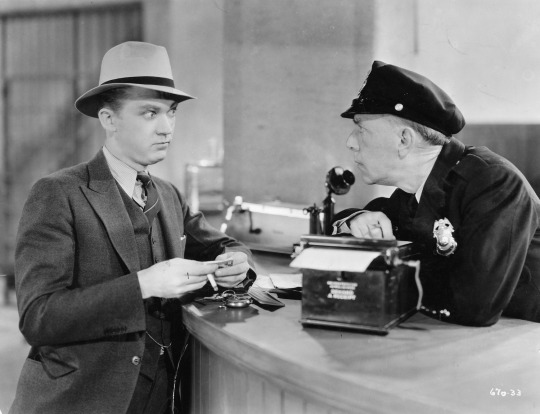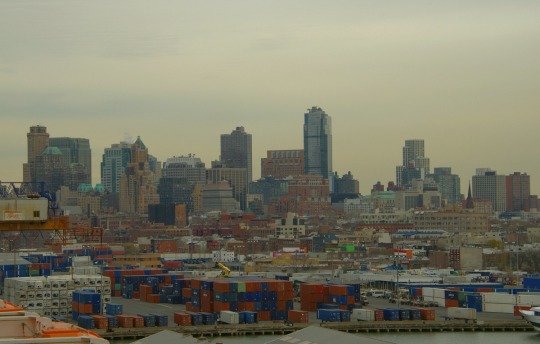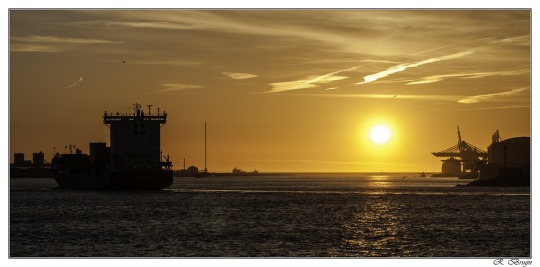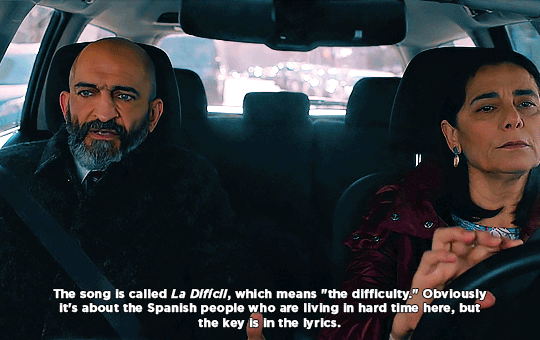#immigration translation
Text
What Are Sworn Translation Services
What Are Sworn Translation Services?
Sworn translation services provide legally recognised translations of official documents. These services ensure that documents maintain their legal validity across different languages and jurisdictions. Translators undertaking this task are often certified by a government or recognized authority. They take an oath to ensure accuracy and faithful translation of…

View On WordPress
#academic translation#birth certificate translation#certified translation#certified translator#court document translation#diploma translation#document translation#government document translation#immigration translation#legal certification translation#legal document translation#legal translation#marriage certificate translation#notarized translation#notarized translator#official translation#professional translation services#sworn translation services#sworn translator#translation certification
0 notes
Text
Choosing the Right Immigration Translation Service
Immigrating to a new country often requires the translation of various documents, from birth certificates to academic transcripts. Selecting the right immigration translation service is essential to ensure accuracy, reliability, and compliance with immigration requirements. Here's a comprehensive guide to help you choose the best immigration translation service for your needs.
Understanding Your Translation Needs
Before choosing a translation service, identify the specific documents that require translation and their intended use. Consider factors such as:
Document Types: Determine the types of documents you need to translate, such as birth certificates, marriage certificates, academic transcripts, or legal contracts.
Language Pairs: Identify the languages involved in the translation, ensuring that the translation service offers expertise in both the source and target languages.
Certification Requirements: Determine whether your translated documents need to be certified or notarized for immigration purposes.
Assessing Quality and Accuracy
Quality and accuracy are paramount when it comes to immigration translation. Consider the following factors to assess the quality of a translation service:
Translator Qualifications: Ensure that the translation service employs certified translators with expertise in immigration documentation and familiarity with legal terminology.
Quality Assurance Processes: Inquire about the quality assurance processes employed by the translation service, such as proofreading and editing, to ensure accurate and error-free translations.
Sample Translations: Request sample translations or references to assess the quality of the translation service's work and its suitability for your needs.
Compliance with Immigration Requirements
Immigration authorities often have specific requirements regarding document translation. Choose a translation service that:
Adheres to USCIS Standards: Ensure that the translation service follows the standards set by the United States Citizenship and Immigration Services (USCIS) or relevant immigration authorities.
Offers Certification Options: Select a translation service that provides certification or notarization options for translated documents, as required by immigration regulations.
Handles Sensitive Information Securely: Verify that the translation service has robust security measures in place to protect sensitive personal information contained in your documents.
Considerations for Turnaround Time and Cost
When choosing an immigration translation service, consider factors such as:
Turnaround Time: Determine the time frame within which you need your documents translated and choose a service that can accommodate your timeline without compromising quality.
Cost: Obtain quotes from multiple translation services and compare prices while considering the quality and level of service offered.
Choosing the right immigration translation service is crucial for ensuring accurate, reliable, and compliant translations of your documents. By considering factors such as quality, compliance, turnaround time, and cost, you can select a translation service that meets your immigration needs effectively. Remember to prioritize quality and accuracy to avoid potential complications in your immigration process.
0 notes
Text

The Importance of Understanding in Immigration Translation
Explore how cultural understanding enriches immigration translation, fostering effective communication across diverse communities.
Read More- https://www.newyorktimesnow.com/the-role-of-cultural-understanding-in-immigration-translation/
0 notes
Text
Having my headcanon that Kaz actually speaks lots of languages (because of his great memory and love of spying and eavesdropping) and that he makes Nina translate for no reason because he finds it funny be supported by @19burstraat is so validating
#my hc is that he knows kaelish because of his obsessive hatred of pekka#he knows zemini and ravkan because of how useful they are in a port city/lots of immigrants#he knows suli for inej#and also he understands whenever jes inej and nina cuss him out under their breaths and he finds it hilarious#he's probably working on shu and fjerdan because he hates ACTUALLY having things translated for him#he's just fucking with nina by making her translate for years for no reason#kaz brekker#six of crows#grishaverse#six of crows duology#jesper fahey#inej ghafa#nina zenik
219 notes
·
View notes
Text
demetri from cobra Kai is obviously Greek American and I so wish they had leaned into that because I’m starved for child of immigrants representation and he would be sooo funny…
alternatively Eli with a Russian father and an American mother
#Young demetri having to translate at the store because his mom is trying to return a shirt#Like his name is Demetri Alexopoulos bro#And Eli Moskowitz? Forget ab it#I think Demetri would have two immigrant parents and Eli would have one#cobra kai#eli moskowitz#demetri alexopoulos#headcanon
28 notes
·
View notes
Text
The Port & the City

Buenos Aires, photo by lasgalletas (Creative Commons CC BY-NC 2.0)
Introduction
City of witches and of asphalt,
port with no exit to the sea!
— La Portuaria, from the port of Buenos Aires
Some cities have a port, and some port cities have a port culture. That's how I call it, anyway. It's a very special thing. It's created by the furious economic activity that concentrates around the coming and going of ships, cargo, and people. A port needs to cater to all of that, the ships and the cargo, the shipowner and the dockworker, the captain and the deckhand, the tourist and the sailor and the fisherman. And that transforms the entire city.
Where a port city meets the sea, there's shipping companies, travel agencies, imports/exports, truck companies, posh hotels, shitty hotels, fancy bars, seedy bars, brothels, strip clubs, theatres, restaurants, casinos, bookshops, tool shops, souvenir shops, fishing supplies, and fresh fish. There's peddlers and businessmen, porters and accountants, all sorts of people, and they all mingle. They have to! The port's there!
Port cities have their own landmarks and geography, with docks, wharfs, piers, depots, gates, shipyards, and people can orient themselves by relation to the water.

New York City, photo by Kari Nousiainen (Creative Commons CC BY-NC 2.0)
Crime
My gold watch and my pocketbook and lady friend were gone
And there was I, Jack all alone, stark naked in the room
— the port of New York City
Port cities attract furious criminal activity. Firstly and obviously, everything that's smuggled will be smuggled through here, from cocaine to counterfeit handbags to guns to oil. (I mean crude/refined oil, though with the prices we've seen lately, olive oil is equally plausible.) Port authorities, customs, shipowners and workers, all can have a hand in the pie, a little finger or both hands shoulder-deep, depending on how high up the ladder they are.
Second, ports are always full of newcomers, sailors and passengers, and all newcomers are potential marks. Con artists, scammers, and grifters of all sorts can ply their trade here. There's also a lot of shilling for more or less legitimate businesses (come buy this, sir! rent a room here, ma'am! oh but you must have a drink there, buddy!), and peddling less then legitimate goods (may I interest you in a fine watch? Rayban glasses, I have Rayban glasses! 100% genuine!). And then there's good old pickpocketing. Although in most cases, pickpockets are not allowed to operate within the port itself: it's bad for everyone else's business, and unlike cops, "everyone else" can actually enforce that.
And third, there's the entertainment sector: the trifecta of night life, sex work, and gambling, all going hand in hand with the sale and consumption of drugs and booze. Expect the port city to be much more entangled in all that than other cities, and the port itself to attract the bulk of it, or the worst of it. Things that are theoretically illegal might be tolerated here, things that are heavily regulated elsehwhere might follow their own rules here, and things that are otherwise unheard of can be found here. What are you into? Step right up but beware: the large print giveth and the small print taketh away.
The upshot of all this is that people in the port's vicinity (not the whole city, though) are more likely to be involved, or at least personally know someone who's involved, in profoundly shady and/or illegal business. And that certainly affects the culture. Breaking the law is more "eh" than "oh my!".

Clydebuilt Museum, photo by Paisley Scotland (Creative Commons CC BY 2.0)
Politics
All my life I've lived beside the waters that they call the Clyde
I build the ships and watch them glide down the Broomielaw, sir
Trudge to work in sleet and rain, labour for another's gain
know yer place and don't complain, that's the rich man's law, sir
— Alistair Hulett, from the shipyards of Glasgow
A port displays furious political activity. Unions are strong here, because labour is not only working, it's working hard, manually, in the same spaces (so they can talk about it!), and facing the same dangers to life and limb. Working on the docks, handling cargo containers, and ship-building and maintenance are very hazardous jobs (scrapping even more so, I'd say dramatically so), and under these conditions, it's easier to spot the enemy. Not automatic though. Port cities are traditionally, but not unconditionally, strongholds of the left.
Today, it's extremely important for the left to take the ports, because if it doesn't the fascists will. The workforce here has significant ethnic diversity, coming both from inland (immigrants and local minorities) and from the sea (sailors who go around the world sometimes end up working in random ports). So basically, this either goes "proletarians of the world unite" or "foreigners are stealing our jobs", no middle ground.
By the way, if all your knowledge about port unions comes from The Wire, or worse (for our older readers) from On the Waterfront, please be aware that these are slanted depictions, and you don't actually know anything. [They're not equally slanted, The Wire is nowhere near the other one's level of shameless propaganda, nor so completely divorced from reality. I mean yes, unions can be involved in shady business; so can literally everyone else in the port. But On the Waterfront, without the slightest exaggeration, is to American organised labour what Birth of a Nation is to Black Americans.]

Valparaíso, photo by [o] Rolando Vejar (Creative Commons CC BY-SA 2.0)
Culture
Amo el amor de los marineros que besan y se van.
Dejan una promesa. No vuelven nunca más.
— Pablo Neruda, from the port of Valparaíso
The port's culture seeps through the rest of the city. This is where sailor lore gets created and spread, and a port by definition loves travel and the ocean. Many non-sailors fall for it hook, line and sinker, and write poems and sing songs and their heart swells at the mere thought of sailing. But their fascination is often rose-tinted, whereas people who make a living from the sea typically have a love/hate relationship with it.
Maiden voyages are important occasions in shipbulding ports. A ship's last voyage, before it goes to scrap, is also memorable. If the ship regularly docks there, it will be the talk of the town, and if it's a passenger ship [this assumes a geography with regular passenger runs], a whole mess of people will be sharing stories and memories, waving it farewell, shouting, applauding, crying a little. It can get very emotional.
There's also a silly sort of localism/professional pride going on, where even the port's accountants, who've never set foot below decks IF they've actually boarded a ship, feel like they're a different species of accountant, inexplicably tougher and saltier than their more, er, inland colleagues. No matter who you are and what you do, it's badge of honour to say you're from and/or work at the port, like you're automatically endowed with tenacity and street smarts. It doesn't make sense, but there you have it.

Rotterdam, photo by MaxAmy Photography (Creative Commons CC BY-ND 2.0)
Desire
In the port of Amsterdam there's a sailor who dies
Full of beer, full of cries, in a drunken town fight
In the port of Amsterdam there's a sailor who's born
On a hot muggy morn by the dawn's early light
— Jacques Brel (in David Bowie's adaptation), from the port of Amsterdam
A port is filthy, grubby, and hopelessly romantic. If it faces somewhat west, it's on fire every sunset. Silhouettes of gigantic cranes are framed by red clouds like alien tripods. The sun sinks into the ocean, and tell me, in the whole wide earth, is there a sweeter sight? Ships approach like sea beasts, and dock in their usual place like old friends.
A port carries the whiff of grease and petrol, the cool sea breeze, and the incessant sounds of waves and engines and – most of all – people. A port IS people, passing. And tell me, in the whole wide world, is there anything more exciting and heartwrenching than people passing? A port city can fill you with wanderlust and feel like a prison, or a warm welcome, or a devastating farewell.
And if you point a gun to my head and force me to describe a port in a single word, I'll have to say: desire.
Love me, leave me, hold me tight, walk away, forget.
Look at how I broke inside, and how the sea has swelled!
It's pouring out a riot of colours, scents, and lights,
and in the city's gutter it's building paradise.
— Ξύλινα Σπαθιά, from the port of Thessaloniki

Thessaloniki, photo by Arend Kuester (Creative Commons CC BY-NC 2.0)
La Portuaria - Un dia cualquiera (El bar de la calle Rodney) | the port of Buenos Aires
Ξύλινα Σπαθιά - Ρόδες | the port of Thessaloniki
Tom Waits - Step right up
Finbar Furey - New York City girls | the port of New York
The Dubliners - Go to sea no more | the port of Liverpool
Alistair Hulett - The Old Divide and Rule | the shipyards of Glasgow
The Dreadnoughts - Roll Northumbria | the shipyards of Tyne
The Longest Johns - Fire & flame | the port of Halifax
Maria del Mar Bonet - Merhaba | the ports of the Mediterranean
Cesária Évora - Mar de canal | the port of Mindelo
Susana Baca - Los marineros | the port of Valparaíso
Παντελής Θαλασσινός - Άσπρο καΐκι στη Νέα Πέραμο | the little port of Nea Peramos
Jacques Brel - Amsterdam | the port of Amsterdam
Social Waste - Kasbah | the port of Algiers
Πάνος Κατσιμίχας - Ο πιλότος Νάγκελ | the port of Colombo, so far from Lofoten
Ξύλινα Σπαθιά - Φωτιά στο λιμάνι | the port of Thessaloniki
#the city speaks#theory#trs#the ramblin' rover#pirate#booze#booze et al#no tears for the creatures of the night#smuggler#pickpocket#mixtape#prison ballads#ONE of these days I'll learn to be concise I swear#also I ain't translating Naruda to english#the Rogue's school of translation gives exactly zero fucks#but there's a limit#look it up it's called ''Farewell''#also I didn't include a planned section on immigration#because I got too fucking upset to write words
57 notes
·
View notes
Text
Lol today i learned (while doing German homework) that the whimsical Finnish word "tilpehööri" (= additional trinkets or random things that come along with something else) actually comes from the Swedish tillbehör which is equivalent to the extremely commonly used German Zubehör
#not exactly the same meaning but similar#petition to create 'tsupehööri'...#i already joke with my parents that i'm going to start speaking like 19th century finnish immigrants to america and/or ppl along the swedis#border (also in the 19th century)#(= speaking old-timey finglish/swennish where you make english or swedish words into finnish w pronunciation/spelling)#liisasin tänään tsaitungista että tsuukistraikki jatkuu vii'immä#etc#so yeah lets make this a thing pls /J#ashhdhj translations:#liisasin = [ich habe] gelesen#tsaitungista = in der Zeitung#tsuukistraikki = Zugstreik#vii'immä = wie immer#i'm having so much fun with this xDD#(so my example sentence would be 'i read today in the paper that the train strike keeps going like always')#languages#random
41 notes
·
View notes
Text








Ramy » S3E3 (aka every Immigrant father ever)
- Farouk, it's only a song okay? Probably [Obama's] daughters pick up his songs for his playlist.
- You're just saying that because you didn't hear the song "Savages" by Megan the Horse.
#ramy#ramy youssef#ramy hulu#tv gifs#tv shows#hulu#bad bunny#la dificil#I just wanted this for me lol I thought this was hilarious#bc why is this my immigrant father#and i love that its canon that he speaks spanish and she speaks french#and also this is so Jersey - all my south asian homies love reggaeton I have to translate the lyrics#and just the concept that Obamas playlists are so nonsensical that he must be telling us secret messages? chefs kiss#benito#Amr Waked#latinx#latino#funny#reggaeton
127 notes
·
View notes
Text
feel like we as a community do not take advantage of the fact that almost all of the characters we have at our disposal are bilingual. there is a world of hijinks we are not accessing
#ieytd#*I* would have accessed them like months ago if i remembered how to write#and also if i ever worked up the courage to ask for translations from my like. 8-way-bilingual stepmother#i forgor she knew all of those languages#the only people who might not speak other languages is like. maybe prism and juniper? maybe hivemind? i dont know#and MAYBE phoenix based solely on the translation comment in the first game. but even then that's a stretch#the handler is canonically bilingual. same with anna and fabby and solaris i would imagine seeing as they're all immigrants#i really like the thought that zor is native in spanish its one of my favorite zor headcanons so as far as i'm concerned they're bilingual
47 notes
·
View notes
Text
I have Not been watching the debate because my cat got out and I have been trying to catch her. And so when my neighbor just walked by and said to me about the cat I was trying to catch, "oh, she should know better than to get out right now! It's dangerous, she's gonna get eaten by the immigrants, yknow?? Hahaha", well. You can imagine how I was surprised and concerned about this thing that was being said to me
#thank god my mom was nearby to translate that it was a joke about trump#imagine being me and hearing that said to me without context#it was a stressful moment to be sure#edit i mean like i didnt know why this guy was saying racist things. not bc i thought he was right abt her getting eaten by immigrants
9 notes
·
View notes
Text

ANOTHER will wip i cannot stop painting this man.
#gave will a huge ass forehead and a terrible haircut i will cut that out later lol#not the first or last time say this but hannibal i get u for drawing will so much.#trying a new style for funsies#oil but digital#cuz this man(or hugh overall) deserves to be captured with an oil painting#but i am NOT bout to pull out a canvas drawing him with actual oils cuz first my place is not ideal for oils#and second my family will see it when its drying. and how do i explain this.#drawing a beat up bloody man. no#explaining my social anxiety topic to my east european immigrant parents was hard enough.#especially when u gotta translate ur meaning and words which u usually make up in english to ur mother tongue. I CANT EXPLAIN IT WELL ENOUG#ok this has become a rant#enjoy anyhow#i am procrastinating again#nbc hannibal#hannibal#will graham#fanart#wip#work in progress#digital art#hannibal fanart#will graham fanart#rumaiq art#my post
20 notes
·
View notes
Text
god babel hurt me more than i thought it would. i went into it knowing absolutely nothing about apart from what i read in the blurb and that absolutely did not prepare me. it was so beautifully inevitable. nothing they could have done would have changed the final outcome. robin's story ended where it began. we don't know his name. ramy, poor sweet lovely ramy and oh god victoire, choosing to live not despite it all but because of it all. and letty. her fate was always decided from the start wasn't it? she was always going to betray them. god my stomach hurts when i think about them 😭
#babel#babel an arcane history#babel rf kuang#rf kuang#babel or the necessity of violence#babel spoilers#this book has irreparably destroyed me#as an immigrant from india everything in this book was absolutely justified#a lot of people call kuang's writing style as too in the face but babes that's literally the point#enough of the metaphors and allegories. say it how it is and this book did exactly that.#also the footnotes were super useful bc i know nothing abt translation and much of it was explaining that??#griffin u have my heart and soul#also to the ppl saying there was no character development#look me in the eyes and tell me that robin stayed the same throughout the book#absolutely not there's no way that's true
25 notes
·
View notes
Text
been home for like two days and my parents have already dragged me everywhere for countless errands i’m tired
#it’s like bureaucracy errands where they need someone to speak fluent german for them and translate#my dad doesn’t speak german well my mum does but she doesn’t have the vocab for stuff like#the immigration office and the car registration office and stuff#it’s okay but i’m tired 😭😭😭😭😭😭😭 been proofreading mum’s emails#and writing emails to the citizenship office and going thru documents for days#and making phone calls 🗿🗿🗿🗿🗿 wish my sister would do some of this stuff sometimes#she speaks german better than me cos she’s younger
6 notes
·
View notes
Text
It's so funny that the Polish government makes a big song and dance about offering citizenship to displaced Jews and their descendents but I have been in a bureaucratic stalemate with the town of Zamość for like 5 years because my grandmother's birth records were unsurprisingly destroyed in WWII lol
#I have her school records guys come on#I have their immigration records to the USSR and the US#I am legally certified to translate them even#But nooooooo without a birth record it's invalid. Cowards#They also get really mad about the fact that I speak Polish#????????????????????
11 notes
·
View notes
Text
instagram
11 notes
·
View notes
Note
Sol I gotta ask, when you read japanese, are you at the level where you can read it casually, or does understanding it still take effort? Because even though I've got the basic gist of my second language down, I still would struggle with picking up a novel and consuming it, actively translating the text in my brain takes so much extra effort than skimming words in english 🥲
If it's baby level I can read it just fine haha but longer stuff is impossible without Yomitan because there are just so... many..... kanji......... Picking up a physical novel or newspaper and being able to understand 100% of it is still beyond my skill level, but I am probably at least to a point where I could give like a vague summary of what's happening.
I'm not sure how many kanji I have memorized exactly... When I started the Begin translation a few years back I probably knew maybe 200 (what was I doing translating books at just 200 kanji?!?) and I'd be surprised if I knew less than 800 now, which is nearly a third of the recommended number needed to fully understand a newspaper (~2200). That's just kanji though, my actual vocabulary is a lot higher than that lol
I'd love to take an actual Japanese class some day... Self study has gotten me REALLY far but, like you, there are a lot of times where I have to translate it into English before it clicks with my brain, and I think I would be a lot more efficient at translating in general too if I had more professional studying. Maybe some day!!
#asks#I'd like to take the class in person because ADHD brain needs a 'focus space' to go into study mode#But I live in like the middle of a super western European no man's land as far as Asian languages go haha#Too bad I'm not working with Thai or any of the Chinese dialects...#There are a bunch of Thai and Chinese immigrants here and probably classes/tutors for those languages too#Still endlessly funny to me that I only went with Japanese because my best art supplies only had Japanese language packaging#Now here I am like nearing 3 books translated....
10 notes
·
View notes